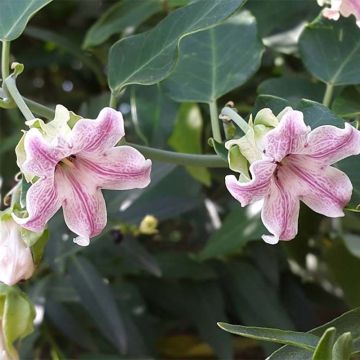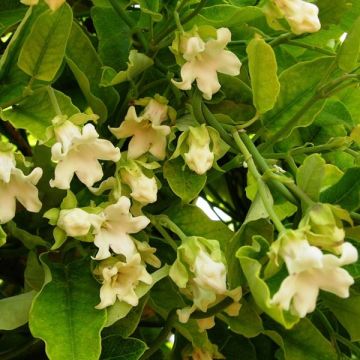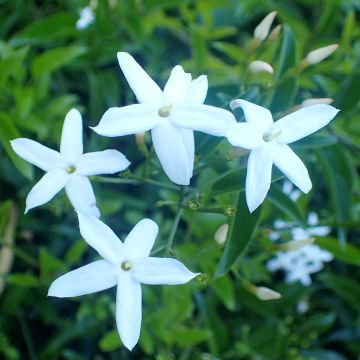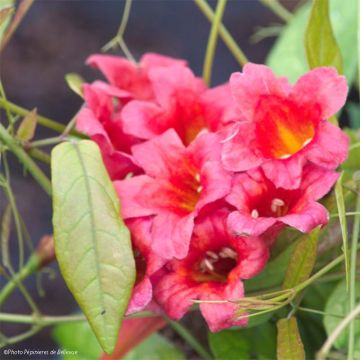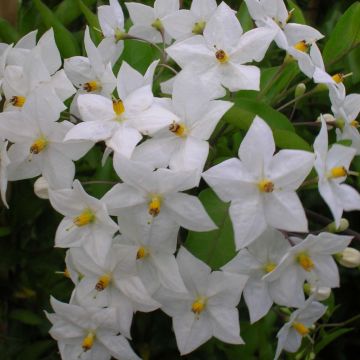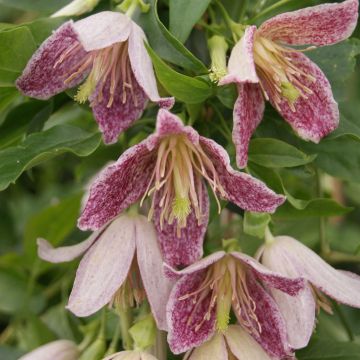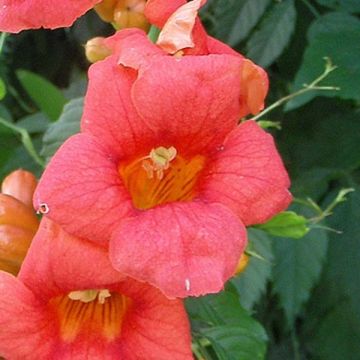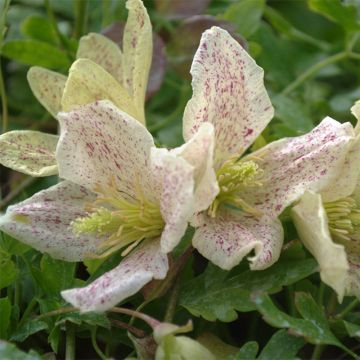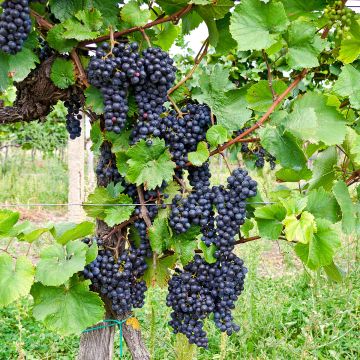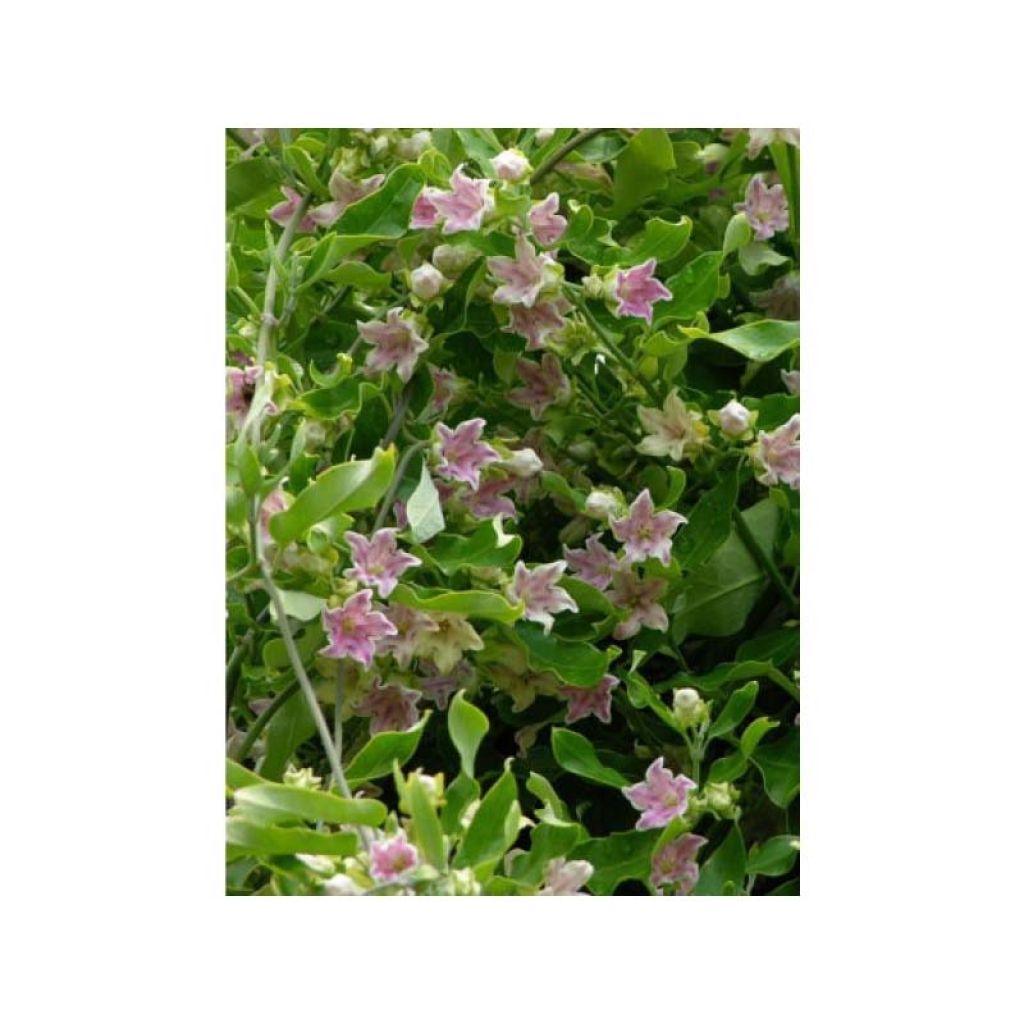

Araujia sericifera Rosea
Araujia sericifera Rosea
Araujia sericifera Rosea
White Bladderflower, Cruel Plant
Special offer!
Receive a €20 voucher for any order over €90 (excluding delivery costs, credit notes, and plastic-free options)!
1- Add your favorite plants to your cart.
2- Once you have reached €90, confirm your order (you can even choose the delivery date!).
3- As soon as your order is shipped, you will receive an email containing your voucher code, valid for 3 months (90 days).
Your voucher is unique and can only be used once, for any order with a minimum value of €20, excluding delivery costs.
Can be combined with other current offers, non-divisible and non-refundable.
Home or relay delivery (depending on size and destination)
Schedule delivery date,
and select date in basket
This plant carries a 6 months recovery warranty
More information
We guarantee the quality of our plants for a full growing cycle, and will replace at our expense any plant that fails to recover under normal climatic and planting conditions.
Would this plant suit my garden?
Set up your Plantfit profile →
Description
Araujia sericifera Rosea is identical in all respects to this beautiful South American climbing plant known as the cruel plant. It is distinguished solely by its beautiful pink flowers. These are pretty tubular bell-shaped flowers, pleasantly fragrant, which bloom in small clusters here and there along the stems from August until late in the season. This exuberant but frost-sensitive climber is grown in a large pot, which allows the plant to be overwintered in a frost-free greenhouse or conservatory which prevents it from spreading in nature.
Araujia sericifera Rosea is a climbing perennial with voluble stems of the Apocynaceae family, related to periwinkle, oleander, and mandevilla. It is native to Peru, Argentina, and Brazil. Plants in this botanical family have the common characteristic of secreting a white latex, which is clearly visible when the stems are broken. This species gets its name 'the cruel plant' from the presence of small hooks at the bottom of its flowers, capable of trapping certain insects such as bees and moths. Araujia is currently considered potentially invasive.
Araujia sericifera Rosea exhibits very rapid growth, and its long hairy stems can exceed 6m (20ft) in length. It has evergreen leaves in winter, but they will be scorched by cold temperatures as soon as they drop below -1°C (30.2°F). The root, on the other hand, can withstand short freezes of around -10°C (14°F) if the soil is dry, for a mature and well-rooted plant. The entire oval-shaped leaves, 10cm (4in) long, are glaucous green, slightly hairy on the underside. Flowering occurs from August to November. It takes the form of clusters composed of 2 to 10 small pink and fragrant flowers. The corolla of flowers consists of a tube that widens into five lobes with undulate margins. After pollination by insects, green fruits about 10cm (4in) long appear which, when ripe, release hundreds of small black seeds with long white bristles that are carried away by the wind.
Disclaimer:
To avoid harming pollinating insects that cannot free themselves from its trap, the cultivation of this subtropical plant should be done indoors in a closed environment, such as a greenhouse or conservatory. It is also strongly recommended to remove the fruits before they ripen to prevent the dispersion of seeds in nature.
Report an error about the product description
Araujia sericifera Rosea in pictures


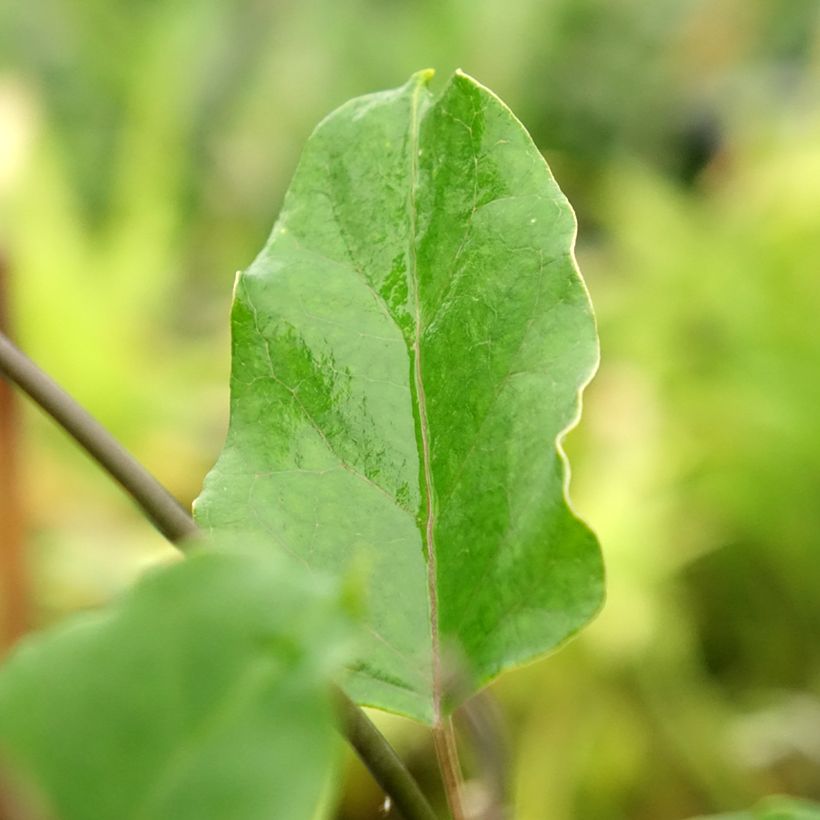

Plant habit
Flowering
Foliage
Botanical data
Araujia
sericifera
Rosea
Apocynaceae
White Bladderflower, Cruel Plant
South America
Other Araujia
View all →Planting and care
To avoid harming pollinating insects, which cannot escape its trap, the cultivation of this plant, originally from subtropical regions, will be done indoors in a closed environment such as a greenhouse or conservatory. Remove the fruits before they dry out to prevent seed dispersal. Prune if necessary to prevent the plant from becoming too invasive by removing disorderly stems and branches throughout the year. In April, you can cut back Araujia sericofera Rosea by half.
It is a low-maintenance plant, but it prefers deep and fertile soils that remain slightly moist in summer. Feed potted plants well with organic fertiliser, as it is quite demanding.
Planting period
Intended location
Care
This item has not been reviewed yet - be the first to leave a review about it.
Similar products
Haven't found what you were looking for?
Hardiness is the lowest winter temperature a plant can endure without suffering serious damage or even dying. However, hardiness is affected by location (a sheltered area, such as a patio), protection (winter cover) and soil type (hardiness is improved by well-drained soil).

Photo Sharing Terms & Conditions
In order to encourage gardeners to interact and share their experiences, Promesse de fleurs offers various media enabling content to be uploaded onto its Site - in particular via the ‘Photo sharing’ module.
The User agrees to refrain from:
- Posting any content that is illegal, prejudicial, insulting, racist, inciteful to hatred, revisionist, contrary to public decency, that infringes on privacy or on the privacy rights of third parties, in particular the publicity rights of persons and goods, intellectual property rights, or the right to privacy.
- Submitting content on behalf of a third party;
- Impersonate the identity of a third party and/or publish any personal information about a third party;
In general, the User undertakes to refrain from any unethical behaviour.
All Content (in particular text, comments, files, images, photos, videos, creative works, etc.), which may be subject to property or intellectual property rights, image or other private rights, shall remain the property of the User, subject to the limited rights granted by the terms of the licence granted by Promesse de fleurs as stated below. Users are at liberty to publish or not to publish such Content on the Site, notably via the ‘Photo Sharing’ facility, and accept that this Content shall be made public and freely accessible, notably on the Internet.
Users further acknowledge, undertake to have ,and guarantee that they hold all necessary rights and permissions to publish such material on the Site, in particular with regard to the legislation in force pertaining to any privacy, property, intellectual property, image, or contractual rights, or rights of any other nature. By publishing such Content on the Site, Users acknowledge accepting full liability as publishers of the Content within the meaning of the law, and grant Promesse de fleurs, free of charge, an inclusive, worldwide licence for the said Content for the entire duration of its publication, including all reproduction, representation, up/downloading, displaying, performing, transmission, and storage rights.
Users also grant permission for their name to be linked to the Content and accept that this link may not always be made available.
By engaging in posting material, Users consent to their Content becoming automatically accessible on the Internet, in particular on other sites and/or blogs and/or web pages of the Promesse de fleurs site, including in particular social pages and the Promesse de fleurs catalogue.
Users may secure the removal of entrusted content free of charge by issuing a simple request via our contact form.
The flowering period indicated on our website applies to countries and regions located in USDA zone 8 (France, the United Kingdom, Ireland, the Netherlands, etc.)
It will vary according to where you live:
- In zones 9 to 10 (Italy, Spain, Greece, etc.), flowering will occur about 2 to 4 weeks earlier.
- In zones 6 to 7 (Germany, Poland, Slovenia, and lower mountainous regions), flowering will be delayed by 2 to 3 weeks.
- In zone 5 (Central Europe, Scandinavia), blooming will be delayed by 3 to 5 weeks.
In temperate climates, pruning of spring-flowering shrubs (forsythia, spireas, etc.) should be done just after flowering.
Pruning of summer-flowering shrubs (Indian Lilac, Perovskia, etc.) can be done in winter or spring.
In cold regions as well as with frost-sensitive plants, avoid pruning too early when severe frosts may still occur.
The planting period indicated on our website applies to countries and regions located in USDA zone 8 (France, United Kingdom, Ireland, Netherlands).
It will vary according to where you live:
- In Mediterranean zones (Marseille, Madrid, Milan, etc.), autumn and winter are the best planting periods.
- In continental zones (Strasbourg, Munich, Vienna, etc.), delay planting by 2 to 3 weeks in spring and bring it forward by 2 to 4 weeks in autumn.
- In mountainous regions (the Alps, Pyrenees, Carpathians, etc.), it is best to plant in late spring (May-June) or late summer (August-September).
The harvesting period indicated on our website applies to countries and regions in USDA zone 8 (France, England, Ireland, the Netherlands).
In colder areas (Scandinavia, Poland, Austria...) fruit and vegetable harvests are likely to be delayed by 3-4 weeks.
In warmer areas (Italy, Spain, Greece, etc.), harvesting will probably take place earlier, depending on weather conditions.
The sowing periods indicated on our website apply to countries and regions within USDA Zone 8 (France, UK, Ireland, Netherlands).
In colder areas (Scandinavia, Poland, Austria...), delay any outdoor sowing by 3-4 weeks, or sow under glass.
In warmer climes (Italy, Spain, Greece, etc.), bring outdoor sowing forward by a few weeks.






























